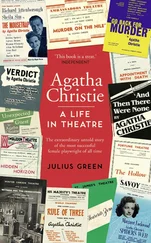See note A at end of chapter.
Riley’s Mem. 627; see also 118, 120-1, 153-4.
Riley’s Mem. 341.
In the second half of the fourteenth century the London guild ordinances are in the main simply rules against bad or deceitful wares. See the chandlers, curriers and pelterers, cappers, potters, &c. Riley’s Mem. 118, 358; Lib. Cus. 94, 101; goldsmiths, Schanz, i. 613-4.
Mem. Lond. 293.
Lib. Cus. 100.
Mem. Lond. 280-2.
Riley’s Liber Custumarum, 101. See the case of the weavers infra p. 160, where the craft tried to shorten hours and the town forbade it.
Ordinances of Pewterers. Riley’s Mem. 243. See also glovers and hatters, &c., 239, 246.
Ibid. 226.
Riley’s Mem. 226-7.
Ibid. 218.
Annual congregations made by the masons were forbidden by statute of Richard II., continued by later Kings (3 Henry VI., cap. i.). The anxiety of the government was quickened by the number of tilers who took part in the Peasants’ Revolt. (Stubbs, ii. 496.) Cf. The Common Weal (ed. Miss Lamond), 88-9.
Statutes of the Realm, 3 Edward IV. cap. 4; ibid. 4 Edward IV. cap. 1. A law of 1410 withdrew from the worsted-weavers and merchants of Norwich the supervision of the cloth trade that had been granted to them in 1348 (Ashley, Woollen Industry, 54-5); and handed over to the mayor, sheriffs, and commonalty of Norwich, the right of measuring and sealing all worsteds made in Norwich or Norfolk. (Blomefield, iii. 125.) A later law enacted that “the worsted shearers in Norwich shall make no ordinance but such as the Mayor and Alderman shall think necessary.” (Stat. 1494, cap. xi.) In the fifteenth century the Privy Council took away from the Bakers’ and Tailors’ Crafts in London the right of search in their trades which had been granted to their Wardens, and restored it to the Mayor, and ordered the crafts to obey the Mayor after the old usages, customs, and laws of London. 1442. Proceedings Privy Council, v. 196; Seligman, Med. Guilds, 82; Schanz, i. 617.
The mayor and aldermen of London had full jurisdiction over all the various trades quite early in the fourteenth century. Two master-masons were reconciled before the mayor of London in 1298. (Mem. Lond. 38.) For early part of the fourteenth century see ibid. 90, 118, 120, 153-4, 216, 156, 178, 245-6.
In “the ordinances of the Hull Guilds from 1490 to 1723 there is no authorization by any but the mayor of the town.” (Lambert’s Guild Life, 188.) For municipal authority over the Shrewsbury Guilds see Hibbert, 40, 85-6. For Norwich, Blomefield, iii. 130.
A law of 1413 ordered the registration of charters and approval of ordinances and bye-laws – a law which was repeated by the Statute of Henry VI. to prevent the masters of guilds and fraternities making ordinances to the damage of the King or the people, when it was again decreed that all their rules should be certified and registered by Justices of the Peace or by the chief magistrates of cities or towns. 15 Henry VI., cap. 6. See also 19 Henry VII., cap. 7.
English Guilds, 283-286.
Ricart, 78. The examples are too numerous to give. But see the ordinances drawn up in 1448 for the Tailors’ Guild of Lynn by the Mayor and the Council. It was ordered that no new tailor should set up in business unless he was considered “sufficient in conning” not only by the two head men of his craft, but also by the mayor. Every tailor admitted to the guild had to pay a fine as entrance fee to the Mayor and another to the community, as well as his payment to the Guild; and paid a yearly fee to the town for any sewers and apprentices whom he employed. Quarrels between shapers and sewers were to be settled by the Mayor and the head men of the craft. If a tailor sent home an ill-fitting garment the buyer might bring his complaint to the Mayor’s Court, and claim amends before the Mayor and the head men of the craft on condition of paying a fine of 3 s. 4 d. if he did not prove his case. (Hist. MSS. Com. xi. 3, 165-6.)












